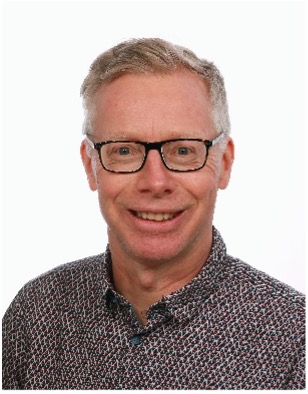Speaker

Martien J. H. Kas - Groningen Institute for Evolutionary Life Sciences, University of Groningen, the Netherlands
Dr. Martien Kas is Professor of Behavioral Neuroscience at the Groningen Institute for Evolutionary Life Sciences at the University of Groningen, the Netherlands. The research of his group aims to develop a transdiagnostic and translational neurobiological approach to the understanding of neuropsychiatric disorders to accelerate the discovery and development of better treatments. To realize this ambition, he has implemented an innovative transdiagnostic strategy that also allows for back translation of human quantitative biological findings to animals to test for causality, to expand our knowledge of the underlying neurobiological mechanism, and to facilitate the drug discovery process. Novel technologies have been developed and validated to stimulate this approach, including a smartphone application to assess real world daily social functioning (https://www.behapp.com/). He has authored more than 250 publications in this field of research. Kas is also President of the European College of NeuroPsychopharmacology (ECNP) where he initiated and is leading the Precision Psychiatry Roadmap initiative, Editorial board member of Mammalian Genome, Member of the Future Diagnostic and Statistical Manual of Mental Disorders (DSM) Strategic Committee, and project coordinator of the PRISM1 and PRISM2 projects, two large EU Innovative Medicine Initiative (IMI) projects that aimed to unpick the biological reasons underlying social dysfunction, which is a common early symptom of Schizophrenia, Alzheimer’s disease and Major Depressive Disorder.
ABSTRACT:
The neurobiology of social dysfunction: a transdiagnostic and translational approach
The current nosology of neuropsychiatric disorders allows for a pragmatic approach to treatment choice, regulation and clinical research. However, without a biological rationale for these disorders, treatment development has stagnated. The EU-funded PRISM project aimed to develop a quantitative biological approach to the understanding and classification of neuropsychiatric diseases to accelerate the discovery and development of better treatments1. By combining clinical data sets from major worldwide disease cohorts and by applying innovative technologies to deeply phenotype stratified patient groups, we have identified and replicated a set of quantifiable biological parameters for social dysfunction common to Schizophrenia (SZ), Major Depression (MD), and Alzheimer's Disease (AD)2,3. To test for causality of these human findings, we have applied chemogenetic and neuroimaging technologies in freely moving group housed mice that were monitored longitudinally in semi-natural environments4. These animal study provided direct evidence for a causal relationship between Default Mode Network integrity and social dysfunction, with potential implications for developing targeted treatments in precision psychiatry.
References:
- Kas, M. J. et al. A quantitative approach to neuropsychiatry: The why and the how. Neurosci Biobehav Rev 97, 3–9 (2019).
- Saris, I. M. J. et al. Social dysfunction is transdiagnostically associated with default mode network dysconnectivity in schizophrenia and Alzheimer’s disease. The World Journal of Biological Psychiatry 23, 264–277 (2022).
- Kas, M. J. H. et al. Digital behavioural signatures reveal trans-diagnostic clusters of Schizophrenia and Alzheimer’s disease patients. European Neuropsychopharmacology 78, 3–12 (2024).
- Ike, K. G. O. et al. The human neuropsychiatric risk gene Drd2 is necessary for social functioning across evolutionary distant species. Mol Psychiatry (2023) doi:10.1038/s41380-023-02345-z.
CIN Symposium 18 June
 Registration website for CIN Symposium 18 June
Registration website for CIN Symposium 18 JuneCIN Symposium 18 Junecin@maastrichtuniversity.nl
CIN Symposium 18 Junecin@maastrichtuniversity.nlhttps://www.aanmelder.nl/cin18062025
2025-06-18
2025-06-18
OfflineEventAttendanceMode
EventScheduled
CIN Symposium 18 JuneCIN Symposium 18 June0.00EUROnlineOnly2019-01-01T00:00:00Z
Maastricht UniversityMaastricht UniversityMinderbroedersberg 4-6 6211 LK Maastricht Netherlands
